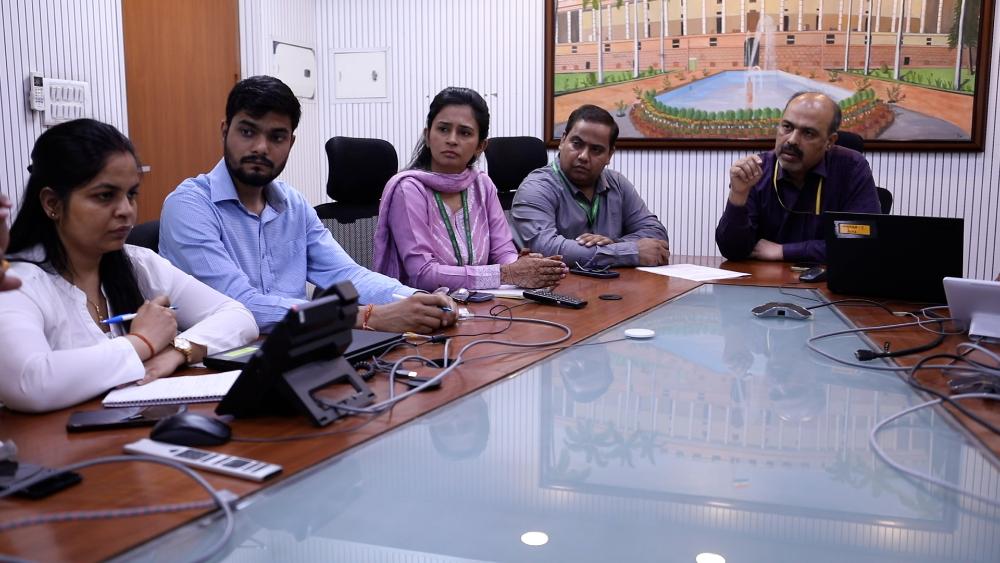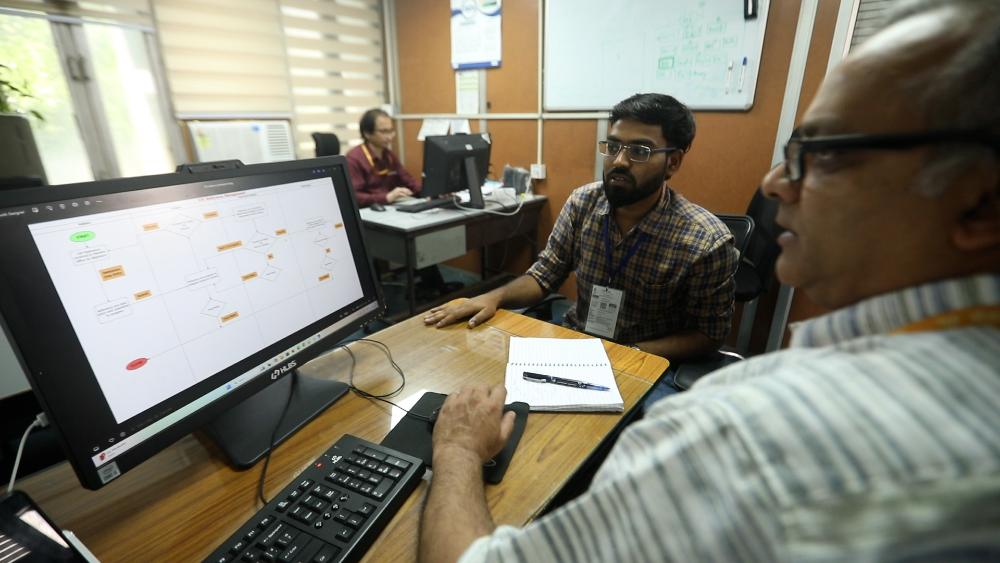Ethical Governance 2025
SERVICEPLUS
A Metadata-Based eService Delivery Framework by NATIONAL INFORMATICS CENTRE
Digital Pathways to Transparency: The Ethical Impact of ServicePlus by NIC

During a particularly hot New Delhi summer in 2012, amidst piles of paperwork and overflowing filing cabinets, a quiet revolution began at the National Informatics Centre (NIC). A small group of visionary technocrats, led by the dedicated Dr. Neeta Verma, then Director General of NIC, dared to imagine a radically different future—one where accessing government services would no longer mean endless queues, bureaucratic hurdles, or opaque procedures. That vision soon crystallized into a powerful reality named “ServicePlus,” a platform poised to transform India’s governance landscape forever.
Conceived within the e-Panchayat mission, ServicePlus was simple yet revolutionary—a low-code, metadata-driven platform enabling governments to deliver citizen services swiftly, transparently, and ethically, without extensive coding or complicated customization. At first, skepticism lingered: could such a streamlined approach truly navigate India’s complex bureaucratic web and deliver equitable services from metropolitan cities to rural villages?
Yet, ServicePlus swiftly shattered all doubts. Under the passionate stewardship of many champions like Shri Sreejith N P and numerous members of this committed team, the platform rapidly spread across states, changing citizens’ lives profoundly. In Karnataka, “Seva Sindhu” offered urban dwellers unprecedented ease. In Haryana, farmers and entrepreneurs accessed government schemes seamlessly via the “Saral Portal.” Meanwhile, rural communities from Bihar to Odisha, once neglected and underserved, began experiencing governance that was not only efficient but also dignified.

ServicePlus wasn’t just digitizing services—it was humanizing governance. At village kiosks, transformative stories unfolded daily: elderly pensioners no longer pleading at distant offices, young entrepreneurs receiving timely business approvals, and countless citizens relieved from the indignities of delays and uncertainty. By integrating national digital initiatives such as Aadhaar and DigiLocker, ServicePlus ensured secure, fair, and inclusive access to services, significantly reducing avenues for corruption.
Yet, beyond technology and innovation, the core strength of ServicePlus lay in its profound ethical commitment. Real-time application tracking and transparent workflows empowered citizens, strengthened accountability, and improved governance trust. A quiet dignity emerged, visible in rural Odisha’s senior citizens, who no longer worried whether their pensions would arrive. This quiet yet profound transformation echoed in countless stories, each underscoring the human impact of ethical digital governance.
Over the years, the dedication and innovation of the NIC team expanded ServicePlus exponentially, reaching over 3,600 services nationwide by 2025. Continuous refinement, driven by passionate leaders like Shri Sreejith N P, enabled it to become integral across ministries, state departments, and thousands of districts. Evaluations by eminent experts such as Shri D.K. Jain and Prof. Harekrishna Misra affirmed its remarkable outcomes: reduced grievances, faster service delivery, and enhanced accountability.
However, the NIC team knows ethical governance requires ongoing vigilance, innovation, and deeper citizen engagement. This awareness keeps ServicePlus continually evolving, remaining responsive to India’s diverse needs.
Today, the ServicePlus story stands as a testament to visionary leadership, ethical governance, and collaborative innovation. Quietly but powerfully, it has proven that governance can truly serve citizens equitably and transparently. At the heart of this transformation remains NIC, whose relentless commitment continues guiding India toward a brighter, fairer, more transparent future.




